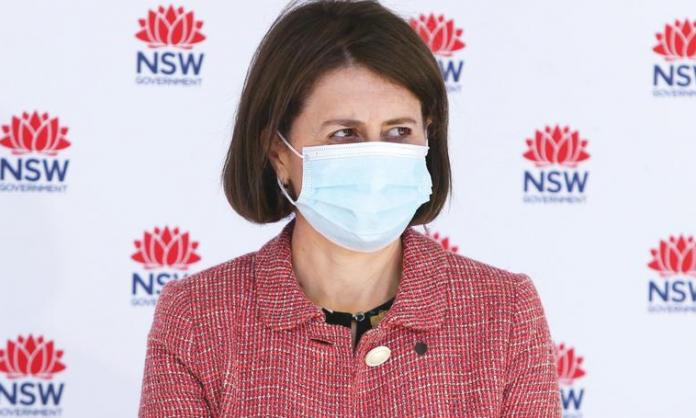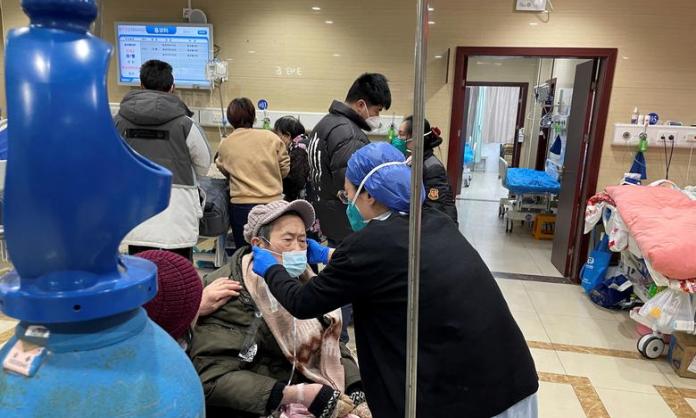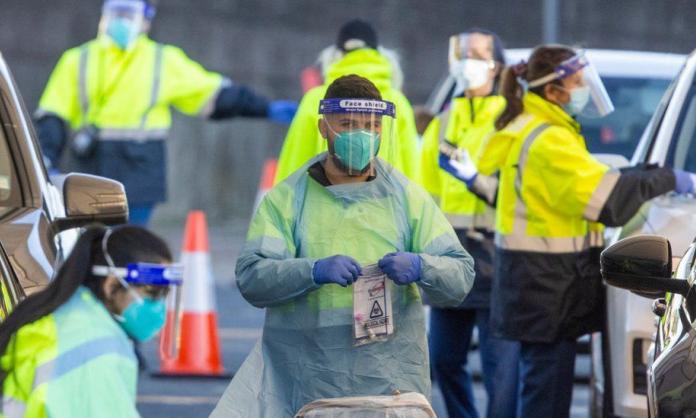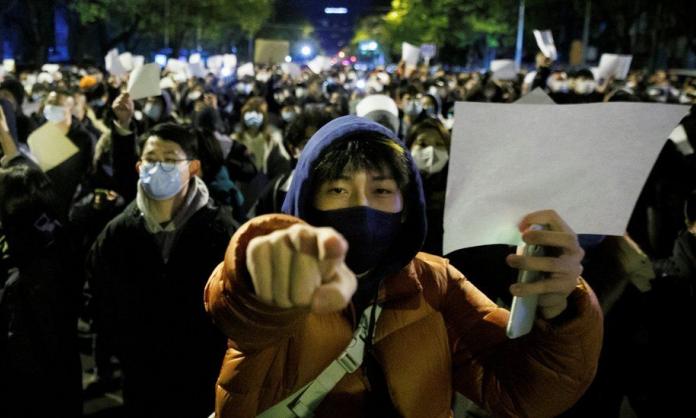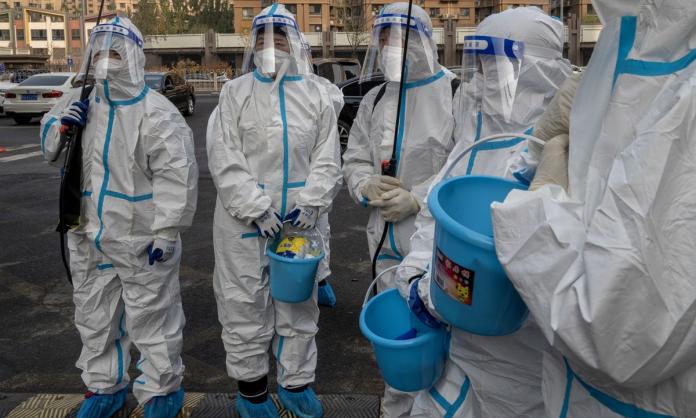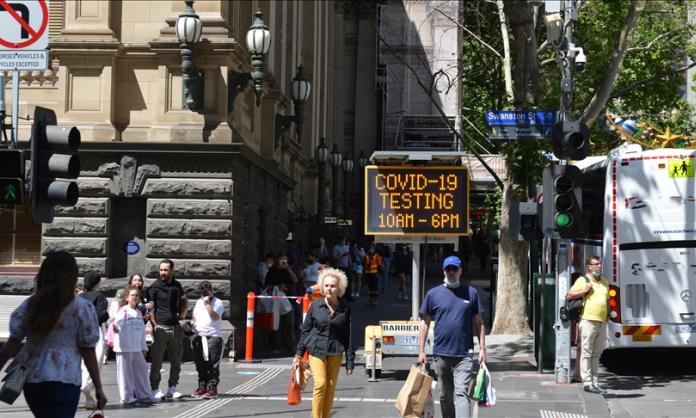Australia is on the brink. Coronavirus case numbers, hospitalisations and deaths are mounting, and show no signs of abating. The obstinate refusal of the New South Wales government to impose measures commensurate with the seriousness of the crisis facing the state and the country has become a matter of life and death.
Instead of doing what should be done, and what has proved to be effective elsewhere, the government is blaming ordinary people for failing to comply with the limited health measures that do exist. In response to a question on 7 August about a possible circuit breaker being needed to disrupt the spread in New South Wales—as Chief Medical Officer Paul Kelly has argued—Health Minister Brad Hazzard reiterated that “the circuit breaker is people complying with the rules”. He went on to chide people for attending parties and visiting each other’s houses.
But it’s the state government that has set the foot-dragging, resentful tone when it comes to the rules. Premier Gladys Berejiklian has made no secret of the fact that keeping shops open is more important to her than preventing the spread of COVID. The hardware chain Bunnings, which the government has resolutely refused to close despite public criticism, has been an exposure site in a least ten different locations already. On 7 August, a day of record cases and deaths, a burlesque lounge and nail salon were added to the list of exposure sites in the state that professes to have the strictest lockdown conditions so far imposed. Masks are still not mandatory in all public settings, despite being one of the most effective weapons against the Delta strain. And movement is not being restricted in the way that helped Victoria get its various outbreaks under control.
The evidence is in on this grotesque experiment—prioritising business as usual costs lives. The celebrated premier with the “gold standard” approach to coronavirus management is now responsible for a growing number of deaths. All of these deaths were preventable: better restrictions imposed earlier could have contained the outbreak and reduced the amount of time lockdown had to be imposed.
The situation is so bad that the government is starting to talk about “living with” the virus rather than eliminating it. In this scenario, we are expected to accept a certain level of suffering and death in order that “normality”—a euphemism for QANTAS CEO Alan Joyce enjoying large yearly bonuses again—be restored. The Doherty Institute estimates that even in a relatively controlled version of this scenario, up to 2,000 deaths should be expected in the first six months of an outbreak. Presumably it won’t be the NSW cabinet putting up their hands to die so the rest of us can live with it. Such inhuman calculations make a mockery of the apparent concern about suffering and death on the part of the authorities.
Even if the NSW Liberals do swing back to appearing like they respect human life and favour elimination, there may come a point when that is simply not possible even with the most drastic measures. Such is the infectiousness of the Delta strain and the legacy of the repeated failures of the government to change course.
Also to blame for this perilous state of affairs is the federal government’s botched vaccine rollout. Some of the deaths—like that of 27-year-old Aude Alaskar, infected by his wife, a disability support worker—were the result of transmission from essential workers who should have been fully vaccinated by now. Despite government efforts to focus opprobrium on “vaccine hesitancy”, it is the lack of supply and the chaotic rollout that are the main impediments to wider vaccination.
The disastrous situation in NSW is now imperilling the whole country. Already, there have been outbreaks and lockdowns in Victoria and Queensland caused by infected individuals entering from NSW. This threat will remain as long as the NSW government fails to get the situation under control. If the NSW situation deteriorates, it is inconceivable that the whole country won’t eventually be affected, even with strict border controls.
It doesn’t have to be this way. Last year, Victoria (eventually) demonstrated that the elimination of COVID-19 is both desirable and possible. There is a justified expectation that this will continue. By acting quickly and imposing strict measures, Victoria has also shown it is possible to eliminate the more infectious Delta strain. The only hope in NSW is to impose even stricter measures, given how advanced the situation already is. Vaccination alone cannot be relied on; inessential business needs to stop and workplaces that do have to operate must be made safe. Economic support must be provided to workers affected.
What is missing, though, is real material pressure on the NSW government to pick up its act and implement these necessary measures. The forces that could apply such pressure—the federal government, the NSW Labor opposition, the Labor governments in Victoria and Queensland, the media, the unions and others—are to varying degrees and for different reasons refusing to make a political and economic pariah of the NSW government. A traditional protest movement, which could harness the widespread public support for serious health measures and elimination, is unfortunately virtually impossible in the circumstances. Online campaigning is nevertheless vital and has had some success in NSW on the question of school reopenings. But without significant victories, we have no choice but to watch as disaster unfolds.
Keeping COVID-19 at bay in Australia, up until now at least, has been a huge effort and hard won. It was achieved against the wishes of the Morrison government, the bosses and the media, who were determined to lift restrictions to satisfy the bosses’ demands to reopen the economy. In the end, popular opposition, as revealed in repeated opinion polls and two state elections, pushed them back and in doing so proved that elimination was the route to preventing disease, reducing reliance on lockdowns and minimising economic hardship. Those gains have to be defended if we are to avoid the disastrous fate afflicting much of the rest of the world.




